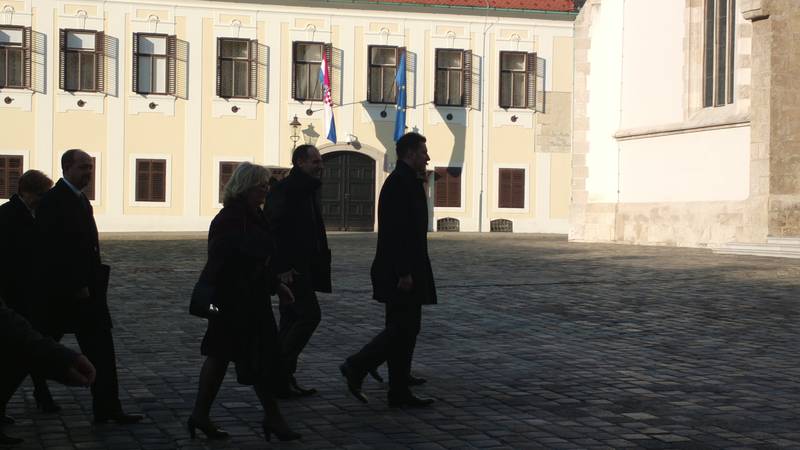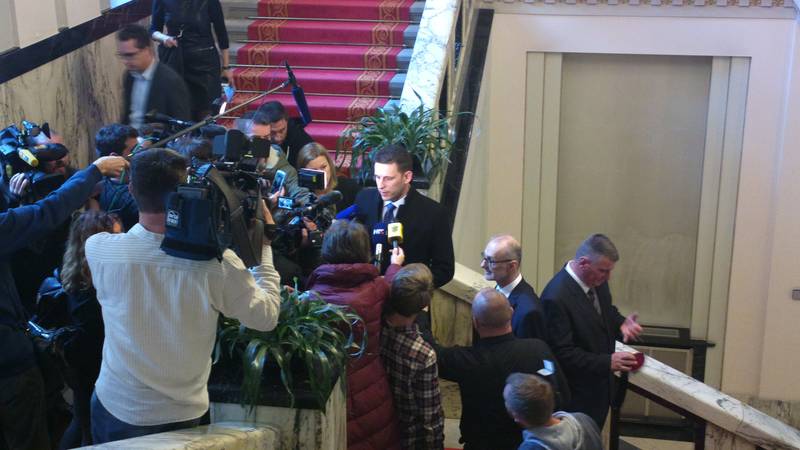Croatia is Heading Toward a Political Crisis
Adelina Marini, December 3, 2015
 Most cannot decide who to form a government with – whether with the centre-left coalition “Croatia is Growing” or with the centre-right Patriotic coalition. Almost a month after the elections, which for the first time in history did not name a clear winner, the new political star Most, made up of independent lists, is unable to make a decision. Both large pre-election coalitions agree to almost all of Most’s demands. Differences are minimal. The reformists, however, want something more. They want a broad coalition, which is to include both pre-election coalitions. Something both of them discard as a possibility, pressuring the young political force to chose. In the first weeks after the elections, for the first time in Croatia there were discussions on reforms that are vital to the country. All media and analysts took up discussing Most’s requests for a reform of the judiciary, administrative reform, monetary reform.
Most cannot decide who to form a government with – whether with the centre-left coalition “Croatia is Growing” or with the centre-right Patriotic coalition. Almost a month after the elections, which for the first time in history did not name a clear winner, the new political star Most, made up of independent lists, is unable to make a decision. Both large pre-election coalitions agree to almost all of Most’s demands. Differences are minimal. The reformists, however, want something more. They want a broad coalition, which is to include both pre-election coalitions. Something both of them discard as a possibility, pressuring the young political force to chose. In the first weeks after the elections, for the first time in Croatia there were discussions on reforms that are vital to the country. All media and analysts took up discussing Most’s requests for a reform of the judiciary, administrative reform, monetary reform.
There was only one signal coming from there, though – we want a broad coalition. This is how the pressure started. After the initial consultations, President Kolinda Grabar-Kitarović called the constitutive session of Parliament earlier than the deadline. “Croatia is Growing” went on the offensive by publicly announcing their proposal that a person from Most becomes Speaker of the Sabor (parliament), which was discarded. This did not discourage the coalition one bit. 55 Members of Parliament put in a proposal that professor Robert Podolnjak from Most is elected Speaker of the Sabor. The session was called for today (December 3), but despite the huge media interest and the presence of ambassadors and representatives of religious communities in the country it ended ingloriously. It turned out that there are no other candidates, regardless of the Patriotic coalition having their own nomination – their guy Željko Reiner. During the brief session of parliament, incumbent Speaker Josip Leko (SDP) kept urging MPs to vote their conscience. A game of nerves began instead.
Branimir Glavaš, who served a sentence for war crimes, called from the rostrum of the Sabor for professor Podolnjak first to accept the nomination and only then are the MPs to vote on it. Many in parliament and the social networks commented that this was the smartest proposition. Elite members of the right-wing Croatian Democratic Union (HDZ) in turn asked Mr Leko for a recess, so the political groups can retire for discussions. He, however, replied that the parliament is not constituted yet, hence there are no political groups. With his proposal Mr Glavaš in fact threw all responsibility in the hands of the only candidate. Noticeably worried, professor Podolnjak was attempting to postpone making a decision by announcing that he could not accept the nomination until the Patriotic coalition states that it supports him. Speaker Leko answered that he must state clearly whether he accepts it or not. The professor refused, which ended this stage of the game.

Some MPs commented that today’s session was a test for the fragile Croatian parliamentary democracy. Others started asking the question what happens next. Answers are few and among them is new elections, something everyone states they want to avoid. The most hunted person in parliament was Most leader Božo Petrov, whose face was showing the huge pressure that he and his party are under. He openly admitted that the president called the constitutive session too early, despite being informed in consultations that Most needs more time. All stares are pointing at Most, and the party declare they cannot be the only ones bearing the responsibility.
The more Most delays its decision, the weaker its chances become at new elections, and the possibilities for true reforms in Croatia become even weaker. The latter is exactly the reason Croats voted en masse for the new political option. Regardless of a lot of talk about reforms, if one of the two large political formations wins the new elections or forms a minority government, reforms are out of their agenda. And this will be unfortunate, for even if a new reformist power emerges, people will hardly trust it.
Translated by Stanimir Stoev
 Kolinda Grabar-Kitarovic | © KGK
Kolinda Grabar-Kitarovic | © KGK Jozo Rados | © European Parliament
Jozo Rados | © European Parliament Aleksandar Vucic, Andrej Plenkovic | © Vlada RH
Aleksandar Vucic, Andrej Plenkovic | © Vlada RH